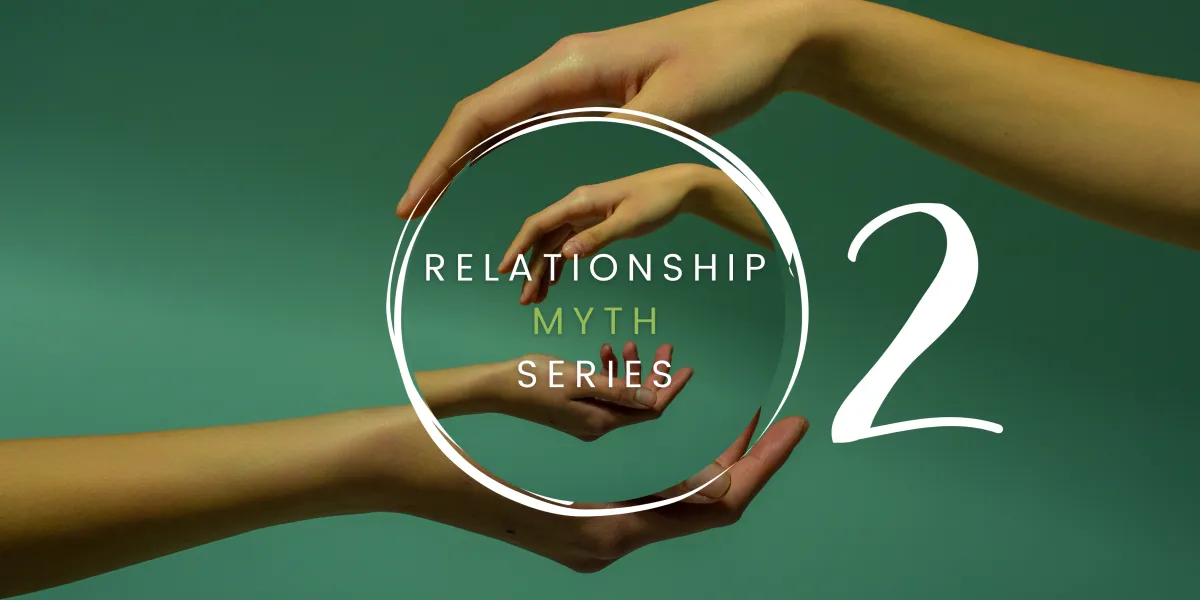My Blog
Welcome
Musings about love, wholeness & everything in between.

Myth #2: My partner is a narcissist
Here is the next piece in my series of Relationship Myths that are messing with our capacity to find our way out of relationship distress. This one is a whoppa:
Myth #2: My partner is a narcissist and other versions of “my partner is the problem”
Massive Disclaimer: Studies estimate the overall prevalence of Narcissistic Personality Disorder (NPD) in the general population to range from 0.8% to 6.2%. It is possible that your partner actually is a narcissist and in that case this myth-busting email does not apply to you. It may help you decide whether to explore NPD further and therefore whether it is best for you to leave your relationship.
For the rest of us: it is highly highly unlikely (93.8% - 99.2%) that your partner is a narcissist, even though social media would have us believe otherwise.
But I want to go further than this: they're not just non-narcissists; they’re also not the problem.
I don’t know about you, but when I scroll my “feed” (gosh, I only just noticed that is the name for what farmers give their cattle… yuck, gotta get off them socials...), I am frequently served - by other relationship practitioners - a hefty dish of “toxic masculinity” with a side-helping of “he’s probably a narcissist”. Other dehumanising concepts abound about women, but - surprise surprise - they don’t show up on my screen very often... clever algorithms.
It is alluring, this narrative that there are bad people and bad partners and it’s pretty much all their fault. Alluring for us, and profit-generating for the practitioners that serve it up.
But if they are not narcissists and they are not the problem… What is going on?
Well, let’s consider this: the most common narcissistic traits that shows up in people without NPD are an over-focus on self and a lack of empathy for others. What could cause behaviour that looks like this?
A threat response.

The most painful aspect of relationship distress is that somehow our partner, our safety person, has become a primary source of threat for our nervous system. (this connects to myth number 1 - the ways we might have constructed them as a threat).
You might be aware of how your partner can appear as a threat to you: threat of abandonment, threat of anger, threat of criticism, etc. What might be harder to grasp is this: in times of distress, you likely appear as a threat to your partner too. This mutual perception of threat can escalate conflicts, leading both partners into a cycle of hurt and defensiveness. (Ouch, sending compassion to those currently snarled up in such a cycle, I know it well)
And so, if your partner appears to have narcissistic traits, consider this: the prey does not stop to empathise with their predator. The prey either runs, attempts to fight or plays dead. All of which end up looking like narcissism to the person that doesn’t realise they are appearing as a threat in that moment.
But here’s the hopeful part: recognizing this dynamic is the first step toward breaking the cycle. It’s not about finding the ‘bad guy’ in the relationship; it’s about understanding how each partner’s behaviours, often rooted in past experiences and fears, contribute to the current dynamics. It’s about learning to communicate and express emotions in ways that don’t trigger these threat responses in each other.
This realisation opens a pathway to healing and growth. It requires us to look inward, at our own behaviours and reactions, and to understand how they impact our partner. It also calls for empathy – to see our partner’s actions not just as personal affronts, but as expressions of their own internal struggles and fears.
It is shifting to this: the problem is not my partner, it is the pattern.
Please know that I’m definitely not suggesting “letting your partner off the hook for bad behaviour”. Part of the pattern may be a person who does not know how to set and hold healthy boundaries and a person who doesn't know how to honour them. In which case that learning is part of the healing path too.
This path is not easy, it involves changing powerfully embedded narratives and healing inter-generational trauma all whilst holding down job and often tending to the next generation… It is the work of true heroes. And all heroes need help sometimes - allies and guides. Don’t hesitate to reach out to a trustworthy practitioner to help you navigate your way to a more authentic, loving and safe connection. With no more predators or preys in sight.
Next in this series, I’ll tackle the myth “We shouldn't’ have to settle”.

